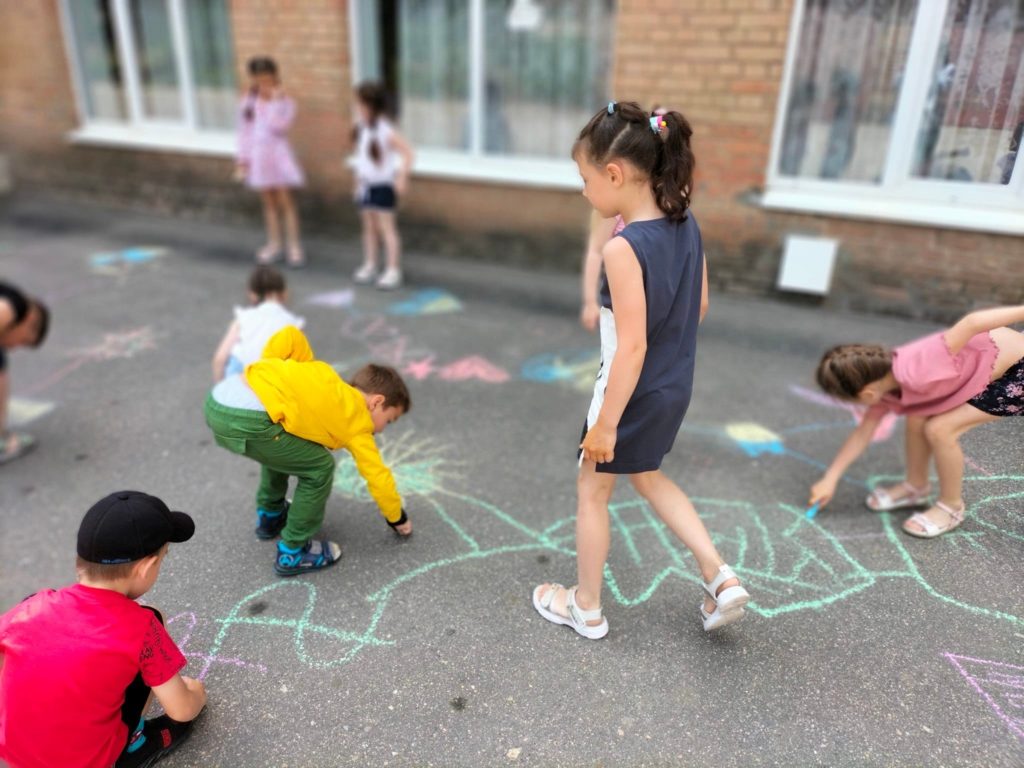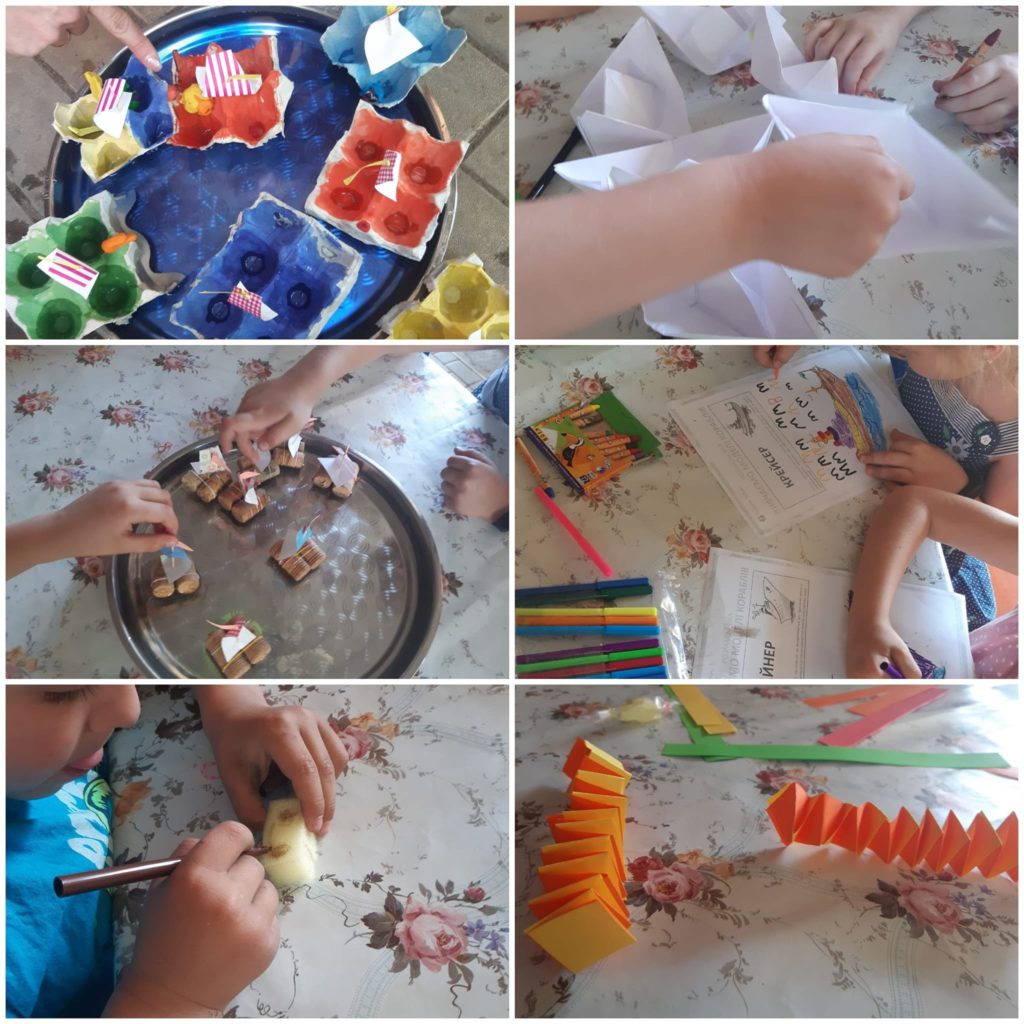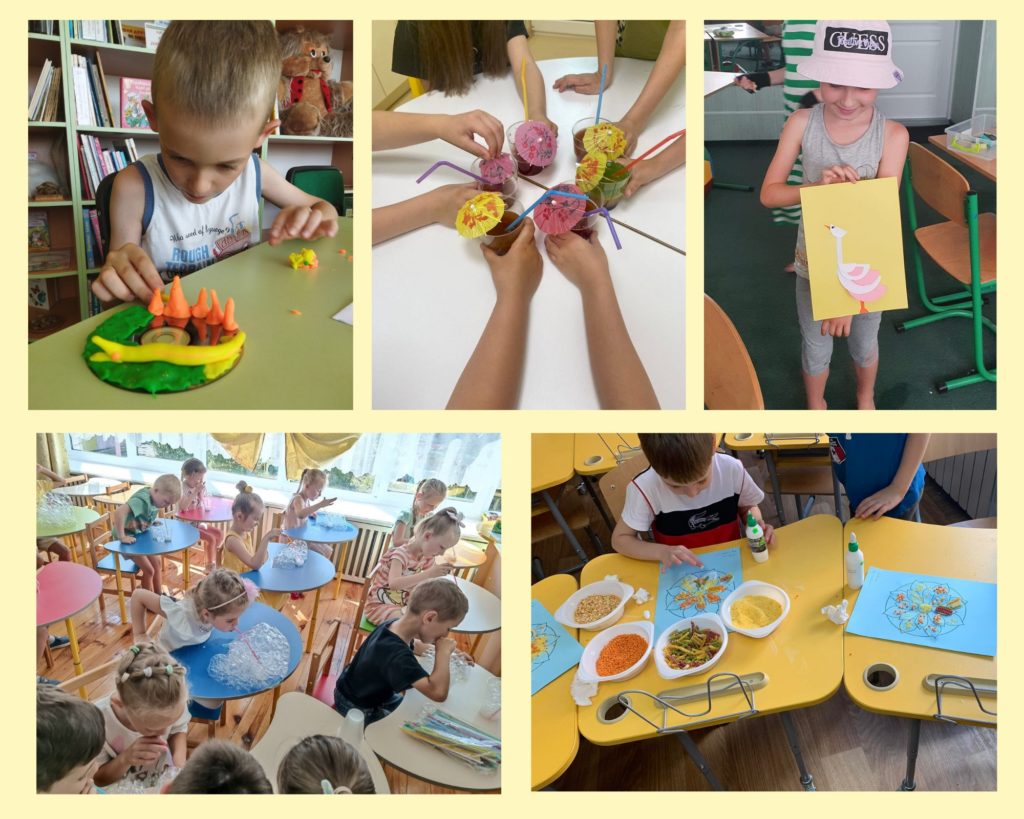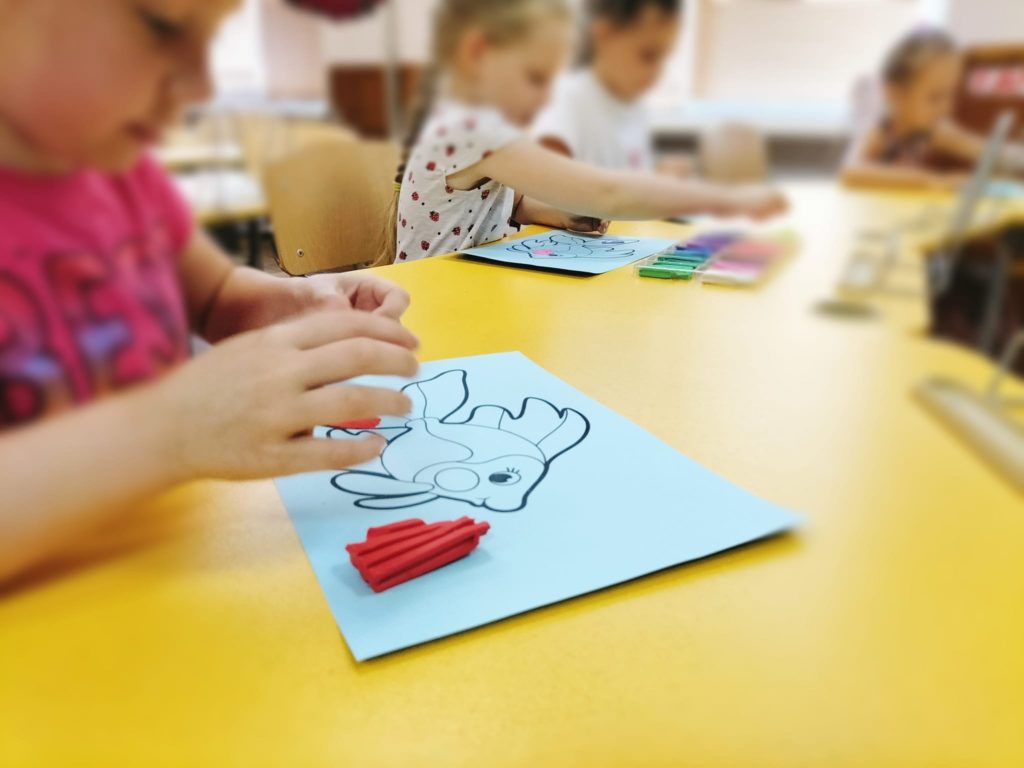When Russia invaded Ukraine, our Schools for Democracy team looked for ways to help. The trainers decided to organize meeting places integrating internally displaced children and their families with the local population.

The meetings included team building, integration activities and stress management techniques to help traumatized internally displaced children feel safer and get better accommodated in their new locations. The youngest participants were 3.5 years old, and the oldest were their grandmothers.
The children studied, played and created beautiful artefacts from paper, wood and fabrics. They listened to fairy tales and decorated gingerbread and cakes. Liudmyla Nekrash, our trainer, recounted a meeting in late August: “We start in a circle, greeting and getting to know each other. Then we continued with exercises to boost mental health and calm anxiety (breathing techniques, tension and relaxation) conducted in a playful way.”
Afterwards, the children drew animals that do not exist in real life and discussed their creations in a mutually respectful way. “Once again, I realized how important it is for children to have an emotionally stable adult around,” says Liudmyla. “An adult who is able to create a psychologically safe space, where every child can be a child.”
One of the mothers shared: “We’ve already returned home to the Kyiv region. Our son tells everyone what he did in class… Thanks to them, my child will have some good memories from this terrible period.”
The School for Democracy trainers encouraged local teachers to participate. The aim was to strengthen their capacity to shape inclusive and safe environment at schools. Teachers were instructed on how to deal with crisis reactions and focus on children’s well-being and psychological health.
The project called Mobile Youth Work later shifted focus from school to pre-school. All in all, more than 500 meetings have been organized reaching 7750 participants.



